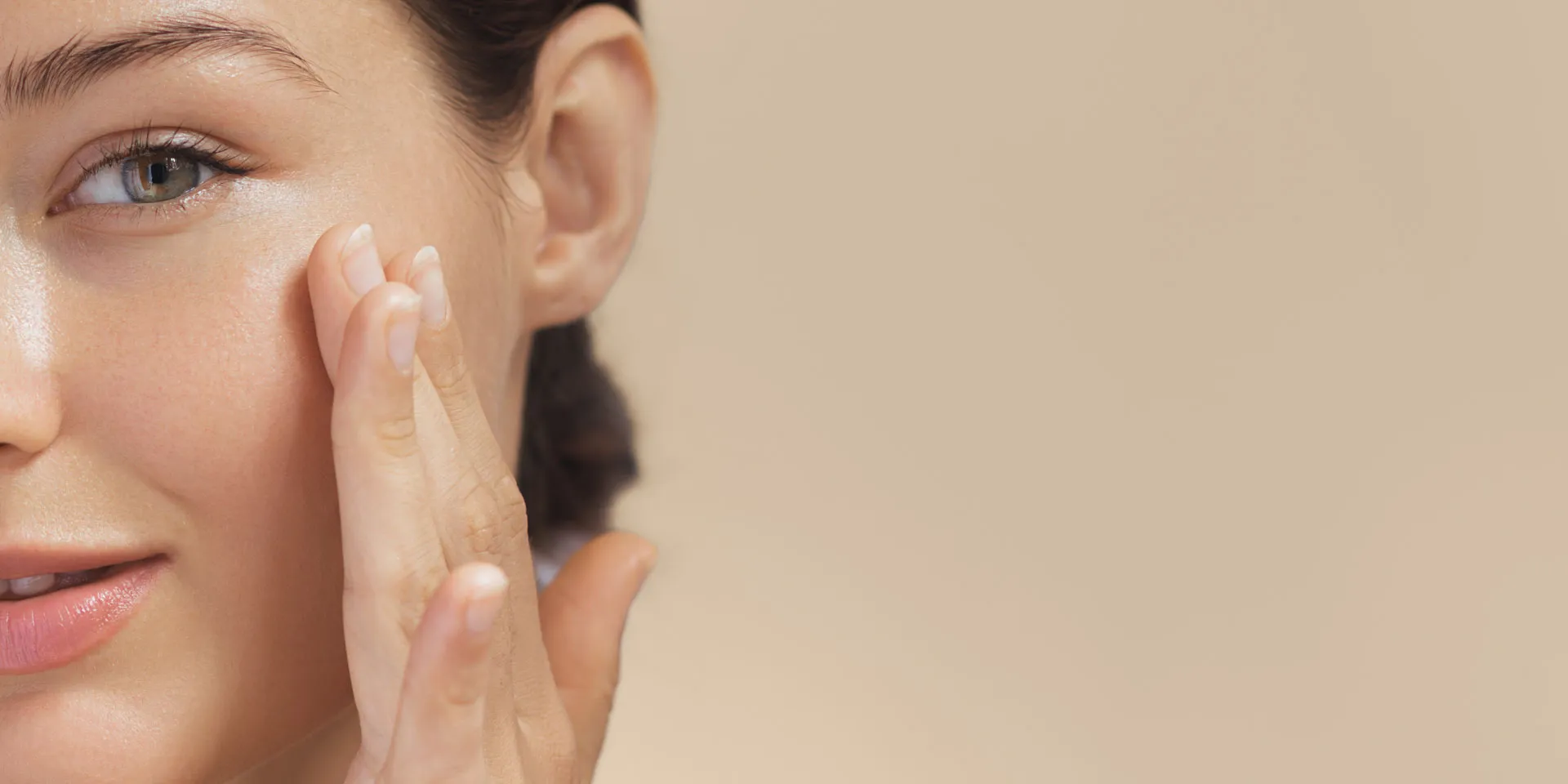FAQ
A staged approach. Foundations first (routine, barrier, consistency), then targeted steps layered in at the right time — so changes are gradual, sensible, and easier to maintain.
The assessment is complimentary. If you choose to proceed with any optional treatments or products, those are separate and explained upfront.
Yes. The nurse can explain the range of laser and light-based treatments we offer, what they’re commonly used for, and whether a dermatologist appointment is recommended before proceeding.
Yes. Cosmetic injectables can be discussed as part of an overall plan, including whether they’re likely to fit your goals and what the next step would be.
A quick list of what you use on your skin (or photos of the products) and your top one or two goals.
No. This is cosmetic-focused.
If your skin issue persists after over-the-counter creams or GP advice, it’s time to see a specialist. We’ll review your history, examine your skin and explain what’s going on in clear terms.
Melasma is often triggered by hormonal changes, sun exposure, and genetic factors. It appears as dark patches, usually on the face, and can be persistent without specialist treatment.
Rosacea is caused by a combination of genetic and environmental factors. Triggers can include sun exposure, stress, temperature changes, certain foods, and hormonal fluctuations.
Rhinophyma is often linked to rosacea, a condition that causes redness and visible blood vessels on the face. It’s typically caused by a combination of genetics, inflammation, and environmental triggers like sun exposure or certain medications.
Any new, changing, or unusual spot should be checked — especially if it bleeds, itches, or grows over time. Look out for asymmetry, irregular borders, uneven colour, and diameter larger than 6mm. But some dangerous spots can look subtle, which is why regular checks with a dermatologist are vital.
Most patients begin to see noticeable improvement after just one treatment, though full results may take several weeks as your skin continues to heal. Multiple sessions are typically required for the best results.
LaseMD Ultra can be tailored to many skin types. Fully ablative CO₂ carries higher pigment-change risk in darker skin and may not be recommended.
Patients often notice benefit in a few days, with peak effect by two weeks. The effect usually lasts 4–6 months before gradually wearing off. Repeat treatment can help maintain control.
Most patients require a series of 3–6 sessions spaced several weeks apart, depending on the scar’s size and response to treatment.
Narrowband UVB uses a very specific wavelength of light that reduces inflammation safely without unnecessary UV exposure, making it more effective and better tolerated than traditional phototherapy.
The laser is precisely adjusted to suit your skin type and concern, delivering targeted pulses to break down pigmentation and promote clearer, more even skin. Treatments typically take 20–30 minutes and are performed with your comfort in mind.
Yes. We use advanced Korean Pico lasers designed to target pigmentation precisely, minimising risk and protecting healthy skin.
Common symptoms include persistent redness on the face, visible blood vessels, and irritation, often around the cheeks, nose, and forehead. If you're unsure, a consultation with a dermatologist can provide clarity and a proper diagnosis.
Yes, early-stage rhinophyma can often be treated with advanced lasers that target the thickened skin and reduce redness. Surgical intervention is typically reserved for more advanced cases where the nose shape has changed significantly.
Most people benefit from annual checks, but if you have a history of sun exposure, skin cancer, or a family history of melanoma, you may need more frequent monitoring. Your dermatologist will recommend the right schedule for you.
The number of treatments varies depending on the severity of your scarring. On average, 3 to 6 sessions are recommended, spaced a few weeks apart, to achieve optimal results.
Results are usually long-lasting, but skin continues to age. Maintenance care, sun protection, and occasional touch-ups help preserve improvement.
Lorem Ipsum
Lorem Ipsum
Lorem Ipsum
Some consultations and treatments attract a Medicare rebate. We’ll let you know up front what you can claim and what your out-of-pocket costs will be.
Most patients require multiple sessions spaced weeks apart. The exact number depends on your skin type, melasma severity, and how your skin responds to treatment.
Yes. We use the latest laser technology designed specifically for rosacea, targeting redness and visible blood vessels with minimal side effects and downtime.
Results can be seen after just one treatment, but multiple sessions may be required, especially for more severe cases. Full results typically appear over several months as the skin heals and improves.
In most cases, a small biopsy will be taken during your appointment. It’s a quick and straightforward procedure done under local anaesthetic. If the result confirms skin cancer, we’ll explain your treatment options clearly and promptly.
Downtime is minimal. You may experience some redness or mild swelling post-treatment, which typically subsides within a few hours to a couple of days. Most patients can return to their normal activities immediately.
LaseMD Ultra: usually 2–3 days. CO₂: usually 1–2 weeks.
Lorem Ipsum
Lorem Ipsum
Lorem Ipsum
Recovery depends on the technique used. Laser-only sessions often mean minimal downtime, while minor excisions or injections may need a week of gentle care.
Melasma can recur, especially with sun exposure or hormonal changes. That’s why ongoing management and sun protection are essential parts of care.
The number of treatments depends on the severity of your rosacea. Typically, patients require several sessions spaced a few weeks apart, with noticeable improvement after each treatment.
While rosacea can’t be completely cured, it can be effectively managed. Our treatments focus on controlling symptoms, preventing flare-ups, and helping you maintain clear, balanced skin long-term.
Downtime is minimal. You may experience redness or mild swelling for a few hours to a day after treatment, but most patients return to their normal activities immediately.
Yes. Many diagnostic and treatment procedures for skin cancer — including biopsies and surgical excisions — are eligible for Medicare rebates when performed by a dermatologist. We'll guide you through any costs and rebate options during your consultation.
Most skin cancer treatments are minimally invasive and well-tolerated. Some may involve small surgical excisions, which require short recovery times. We prioritise precision techniques to reduce scarring and keep downtime minimal.
Yes. Our treatments are safe for most skin types, and we tailor the approach based on your unique skin needs. During your consultation, we’ll assess your skin type and recommend the most suitable treatment for you.
No. Individual results vary and depend on skin type, concern treated, and healing response.sum
Lorem Ipsum
Lorem Ipsum
Lorem Ipsum
Yes. After your initial assessment, we can plan combined sessions—for example, pigmentation correction and fine-line smoothing—to get you faster, lasting results.
Some melasma treatments provided by qualified dermatologists are eligible for Medicare rebates. We’ll discuss your options during your consultation.
While treatment can significantly improve the condition and prevent further progression, rhinophyma can return over time, especially if not managed properly. Ongoing care and lifestyle adjustments, such as sun protection, can help maintain results.
The cost of acne scarring treatment depends on several factors, including the severity of your scarring and the number of sessions required. On average, each session can range from $300 to $600. A full treatment plan may involve multiple sessions, typically 3 to 6, to achieve the best results.
Lorem Ipsum
Results are usually long-lasting, but skin continues to age. Maintenance care, sun protection, and occasional touch-ups help preserve improvement.
Lorem Ipsum
From the moment you book your consultation, we focus on understanding your skin’s needs. During your first appointment, we’ll assess your skin, discuss your concerns, and develop a personalised treatment plan. We’ll then guide you through the process step-by-step, ensuring you feel confident and well-informed at every stage.
We use the most advanced lasers in the world, custom-made in South Korea, designed to treat a variety of skin conditions with precision. These state-of-the-art lasers allow us to target the underlying issues with minimal discomfort and faster recovery times.
We are fully qualified dermatologists, with certifications from the Australian College of Dermatology and recognised as opinion leaders in dermatology, particularly in partnership with Lutronics, a global leader in advanced dermatological equipment.

Ready to take the next step in your skincare?
Whether it’s pigmentation, scarring, rosacea or skin cancer, we’ll provide a clear diagnosis and a treatment plan tailored to your skin’s needs. Call us today or book a consultation to start your specialist care.
